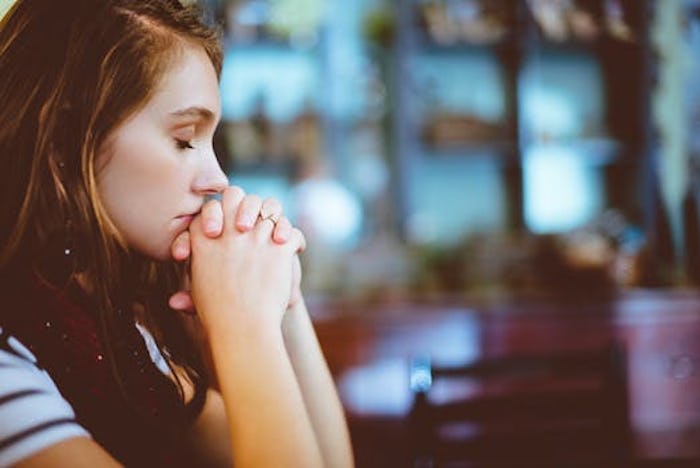Life
How To Get Pregnant After Having Cancer, According To A Reproductive Endocrinologist
Young adults are more likely than ever before to transition from cancer patient to cancer survivor. So young people diagnosed with lymphomas, leukemias, melanomas, and breast cancer aren’t only fighting their disease, but also planning for their futures. Every survivor deserves a chance to create a life of her own choosing, but imagining that life raises a host of questions: how do you get pregnant if you had cancer? Can you have the family you always dreamed you would?
There's no doubt that cancer treatment negatively impacts fertility. How much depends on the type and dose of drugs you receive, and age plays an important role. Doctors aren't fortune tellers — no one can tell in advance who will be sterile after chemo, and who will go on to have a family of five.
At 21, Becki McGuiness was diagnosed with osteosarcoma, reported a story in Cosmopolitan, and she went into early menopause at 23 as a result of her treatment. While her oncologists informed her that cancer might impact her ability to have a child, they failed to explain her options — the measures she could've taken before chemo to preserve her fertility. By the time she learned of the possibilities, her choices — and her chance at biological motherhood — were long gone.
It's a tragic story, but not an uncommon one. Livestrong conducted a survey revealing that 50 percent of cancer patients don't recall discussing fertility risks with their doctors. McGuiness shared her experience with Cosmpolitan to raise awareness about oncofertility. She's not alone in her work. StupidCancer.org, a support site for young adults facing a devastating diagnosis, is passionate about spreading the word. "Fertility preservation is a civil right," reads an Instagram slogan.
What were McGuiness's choices, and how can cancer patients protect their innate ability to have children?
Renowned reproductive endocrinologist Jane Frederick, MD, FACOG, of Saddleback Memorial Medical Center, meets lots of cancer patients. For most, the name of the game is cryopreservation — freezing eggs, embryos, or sperm in liquid nitrogen before chemo has a chance to damage them. Frederick describes a powerful, transformational journey for cancer patients. It begins in her Laguna Hills lab, where women freeze eggs and couples create embryos. The hope is that they will return years later, as cancer survivors, to start their families.
"We're detecting cancer better these days. Our screenings are better, and we have more drugs that are actually making cancer survivors out of the cancer patient," says Frederick. In light of the odds, the American Society of Clinical Oncology (ASCO) now urges cancer doctors to refer young people to fertility specialists as a matter of course. One consultation could prevent the heart-wrenching regret experienced by Becki Guiness and others.
Egg harvesting is a safe and relatively quick procedure. Yes, it might take two or three weeks for your cycle to produce the necessary eggs, but in most cases, waiting that long won't worsen your prognosis. And women who dream of having families jump at the chance to save this precious piece of themselves.
"I open up my schedule the best that I can to accommodate every cancer patient that needs me," says Frederick. Many patients begin chemotherapy the day after she completes her procedure.
Frederick can't know which patients will return to her office to use those eggs or embryos. Still, she considers her work a part of their cancer treatment — one step on the journey from patient to survivor. She likes to take pictures of patient's eggs under the microscope before freezing them, so her patients can hold on to them, like a talisman, while undergoing chemo.
"The cancer patients really need our hope. They need to know that they're going to survive, because they've got to head back to Dr. Frederick's office to utilize those eggs . . . it's our way of supporting them emotionally. To let them know that we're here, and we want to see them back when they're ready," she says.
Cancer treatments can hurt your chances of conceiving a child. Many women do go on to make babies of their own, but no one knows their exact risk in advance. Fertility preservation is by far the best option for those recently diagnosed with the disease. If you've just been diagnosed, ask your oncologist how treatment will affect you, and speak with a fertility specialist about your options. Other resources for becoming a parent after cancer can be found at Fertile Hope and SaveMyFertility.org. Even if your disease compromised your ability to conceive on your own, many family building options exist to help you build the life you want.
